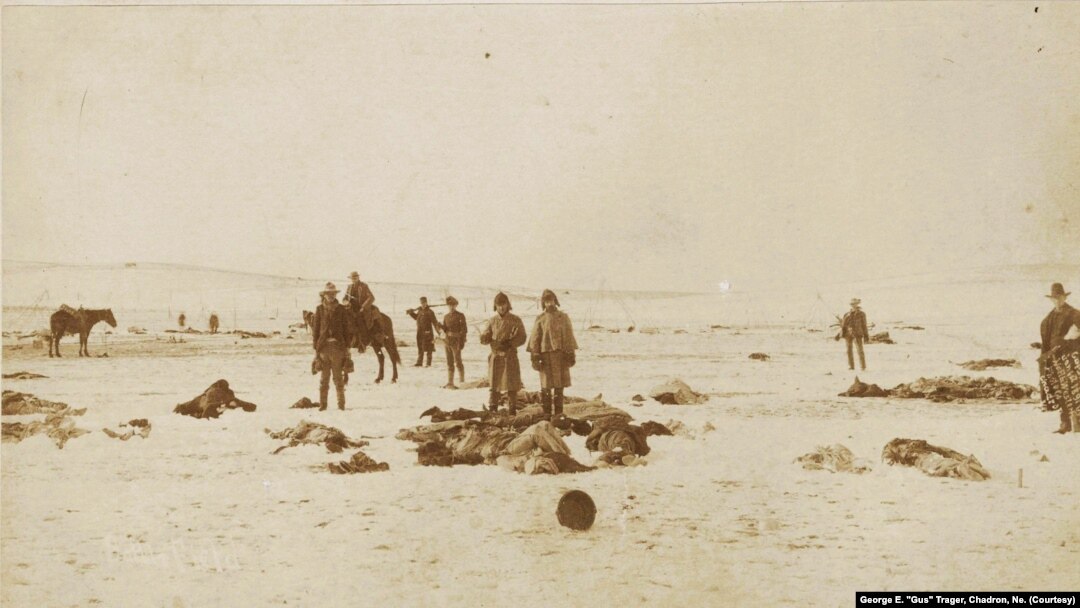U.S. Senator Brian Schatz took to the Senate floor on February 1 to demand that museums and federal agencies comply with the law and return to Native American tribes all ancestral remains and funerary objects in their collections.
Passed in 1990, the Native American Graves Protection and Repatriation Act, or NAGPRA, directs all federally funded institutions to catalog all Native American human remains, funerary items and objects of cultural significance in their collections, submit the information to a National Park Service database, and work with tribes and Native Hawaiian organizations, or NHOs, to repatriate them.
A January update to NAGPRA now requires institutions to “obtain free, prior and informed consent from lineal descendants, tribes or NHOs before allowing any exhibition of, access to, or research on human remains or cultural items.”
“Give the items back. Comply with federal law. Hurry,” the Hawaii senator said.
Schatz credited institutions that have stepped up repatriation efforts, including Harvard University, the American Museum of Natural History in New York and Chicago’s Field Museum. But tens of thousands of ancestral remains are still in collections covered by the law.
“The U.S. government literally stole people’s bones. Soldiers and agents overturned graves and took whatever they could find. And these weren’t isolated incidents — they happened all across the country,” Schatz said.
"The theft of hundreds of thousands of remains and items over generations was unconscionable in and of itself, but the legacy of that cruelty continues to this day, because these museums and universities continue to hold onto these sacred items in violation of everything that is right and moral — and importantly, in violation of federal law.”
Read more:

FILE - South Dakota Governor Kristi Noem, center, is joined by other Republican governors as she speaks during a news conference along the Rio Grande on Aug. 21, 2023, in Eagle Pass, Texas.
Governor, tribal president clash over politics of immigration
Oglala Lakota tribal President Frank Star Comes Out has banned South Dakota Governor Kristi Noem from the Pine Ridge Indian Reservation after a speech in which she accused the Biden administration of failing to protect states from an “invasion” of immigrants across the southern border.
“South Dakota is directly affected by this invasion,” she said in a joint address to state lawmakers on January 31. “We are affected by cartel presence on our tribal reservations; by the spread of drugs and human trafficking throughout our communities; and by the drain on our resources at the local, state and federal level.”
Noem invoked the U.S. Constitution and an 18th-century essay by founder Alexander Hamilton to defend states’ rights to send militias to repel invasions. She also said she is willing to send razor wire and South Dakota National Guard troops to Texas to help the state defend its border with Mexico.
“Only entry plus enmity constitutes an invasion,” Star Comes Out countered in a statement posted to Facebook. “The unlawful entry of people into the United States cannot be construed as an invasion.”
He said, "Many of the people coming to the southern border of the United States in search of jobs and a better life are Indian people," including from El Salvador, Guatemala and Mexico, "and don't deserve to be dehumanized and mistreated."
Star Comes Out said Noem wants to campaign on border issues to get former President Donald Trump reelected “and, in turn, increase her chances of being selected by Trump to be his running mate as Vice President."
Noem responded to Star Comes Out’s Facebook post with a statement saying she has worked for years to build relationships with South Dakota tribes and to deliver services to tribal communities, including health care, economic development, social services, housing, food programs, suicide prevention and drug addiction treatment.
“It is unfortunate that President Star Comes Out chose to bring politics into a discussion regarding the effects of our federal government’s failure to enforce federal laws at the southern border and on tribal lands,” Noem said. “My focus continues to be on working together to solve those problems.”
FILE - Customers shop for produce in the Chinatown neighborhood of Philadelphia, Pennsylvania, on July 22, 2022. A new poll shows that half of Asian Americans, Native Hawaiians and Pacific Islanders under 34 believe the U.S. is “too supportive” of Israel.
Asian American, Native Hawaiian and Pacific Islanders split over US support for Israelis and Palestinians
Polling shows divided opinion on the war in Gaza among Asian Americans, Native Hawaiians and Pacific Islanders. Around half of those surveyed believe the United States is “too supportive” of Israel (48%) and “not supportive enough” (49%) of Palestinians in the current war in Gaza.
AAPI Data and Associated Press-NORC Center for Public Affairs polled 1,091 Asian American, Native Hawaiian and Pacific Islanders in early December. Adults ages 60 and older are more likely to view Israel as an ally than younger people in the survey.
About half of AAPI adults view India as primarily a U.S. partner that does not share U.S. interests and values. A majority say Japan is an ally that does share U.S. interests and values, while about one-third of AAPI adults see China as either a rival or an adversary.
The poll is part of an ongoing project exploring the views of Asian Americans, Native Hawaiians and Pacific Islanders, whose views may not show up in other surveys because of language barriers. Participants were offered the choice to answer questions in English, Mandarin Cantonese, Vietnamese and Korean.
Read more:
FILE - This Feb. 26, 2015, photo, shows an oil well on the Fort Berthold Indian Reservation near Mandaree, North Dakota.
Ecologist: Not all Native Americans are ‘exemplary conservationists’
In a lengthy opinion piece published this week on the Wildlife News website, ecologist and writer George Wuerthner disputes what he calls a “false narrative” that Native American tribal groups universally oppose behaviors and practices that are harmful to the environment.
“People are afraid … to suggest that tribal people are like other humans and are capable of good and bad conservation positions,” he wrote. “At the same time, any information that might temper that conclusion is ignored or suppressed.”
He listed dozens of tribal policies and activities that conservationists say harm the environment, including tribal logging projects in several states, wolf and bison kills, and a National Park Service-sanctioned eagle kill in New Mexico.
At least 12 tribes own oil and gas fields on their reservations. The Navajo Nation owns three coal mines in Montana, Wyoming and New Mexico — making it the third-largest U.S. coal company. It also owns a share of a coal-fired power plant and has partnered on a lithium extraction project in Arizona.
While Wuerthner said he recognizes “numerous examples where Indigenous people have promoted environmental protection,” he opposes the Biden administration’s agreements with tribes to co-manage public lands.
Read more:


